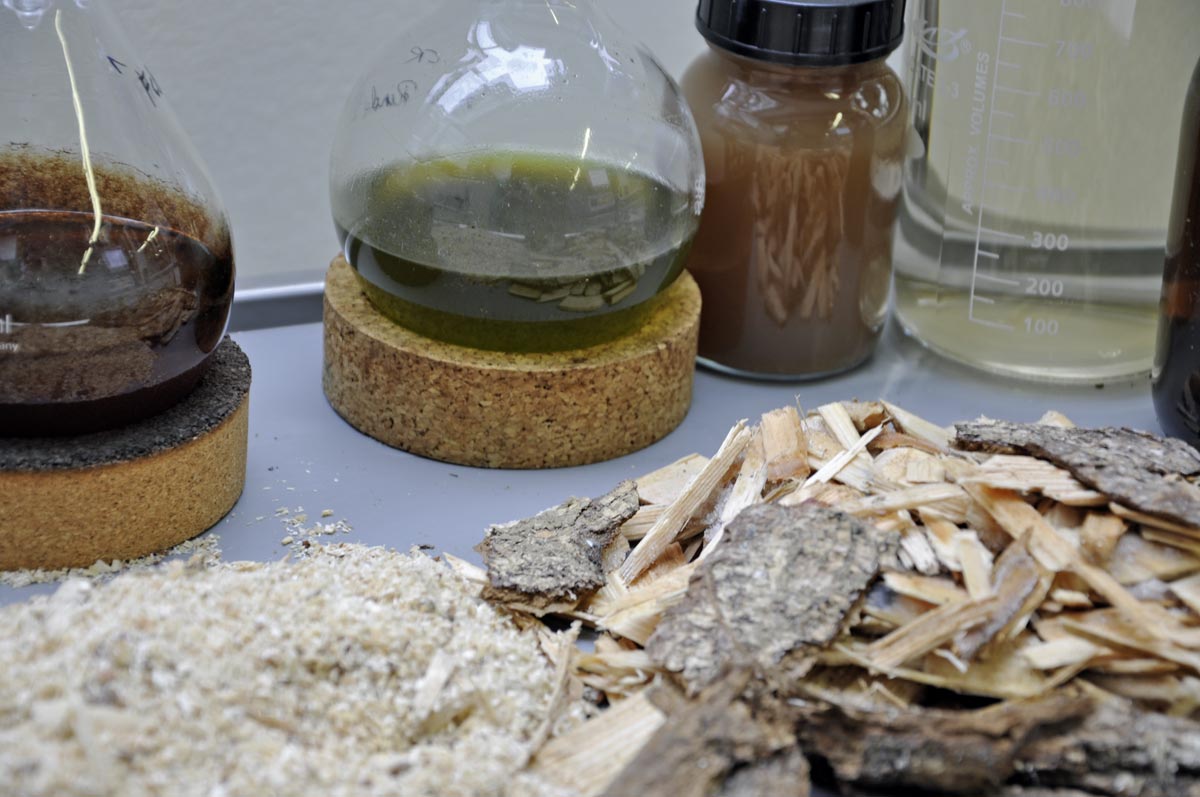In the context of the energy policy turnaround we need to face the issue of how to make the best, most resource-efficient use of agricultural and forestry biomass, organic residues and new raw materials such as algae. With the aid of modern technologies solid, liquid or gaseous biomass is now being used to generate heat and electricity and to produce synthetic biofuels or hydrogen.
In addition, there are many ways of utilizing it as material. Given that biomass is chemically related to the fossil sources of energy, it should be possible to make the same products from biomass as from petroleum, natural gas and coal. Bio-based industries turn biomass into material goods (products). A distinction is made between conventional bio-based products, such as paper or foodstuffs, and new bio-based products made from biogenic materials instead of the fossil raw materials previously used.
Biogenic raw materials can be used to make products and substances in many sectors of industry, including chemicals, pharmaceuticals, composite materials, biopolymers, construction and insulation materials, plus a wide range of specialized bio-based products. The long-term aim must be to develop region-specific strategies for managing biomass that achieve maximum utility, in terms of material and energy, with the least possible consumption of resources.
One cutting-edge approach to making efficient use of biogenic raw materials is cascading uses for biomass. Here biomass is first processed materially in a succession of stages and only later exploited as a source of energy. The word biorefinery refers to technologies for sustainably processing biomass to yield a wide range of marketable products. The use of local biomass has real advantages in both ecological and economic terms; it can help to reduce pollution, diminish dependence on imported non-renewable raw materials and create more value locally. In this issue we present various examples of national and international R&D activities in this field.
Austria‘s strengths in bio-based industries
As part of a survey published by the ÖGUT (Austrian Society for Environment and Technology) and the AIT (Austrian Institute of Technology) in 2016, the current state of bio-based industries in Austria was analysed. Patent applications were identified in particular technological sectors of bio-based industry. They were assigned to the various provinces geographically and compared with other countries in Europe. All in all 2,028 IPC (International Patent Classification) codes were identified as relevant to bio-based industries (BBI). They fall into eight technological categories.
Overall Austria evinced an average degree of specialization in the various BBI sectors during the period under consideration, 2010 to 2014. In some technological fields, such as the textile and cellulose industries, there was a very great degree of specialization; in this sector Austria had twice as many patent applications as the other countries in Europe. The sectors construction and insulation materials from renewable raw materials, paper machines and accessories, polysaccharides, paper, starch and speciality bio-based products and manufacturing processes were also above average.
